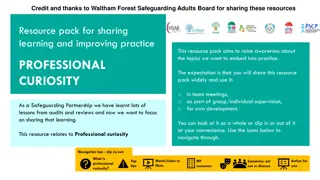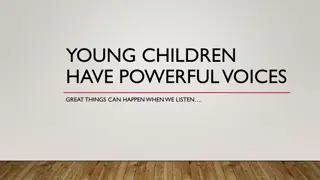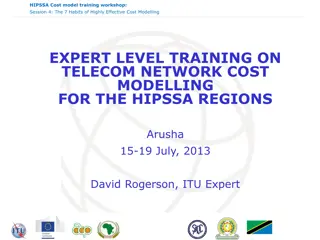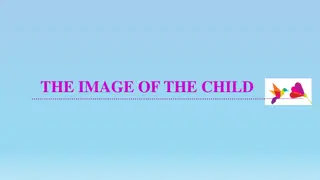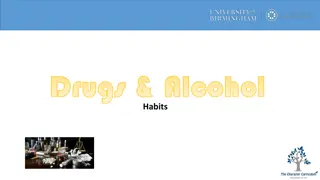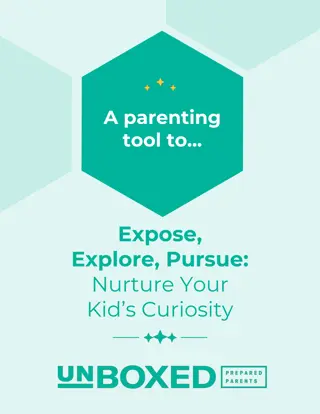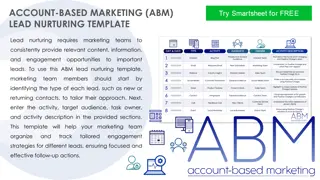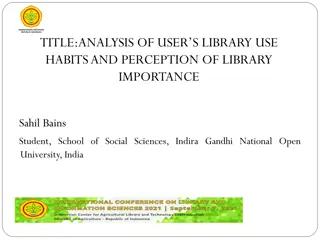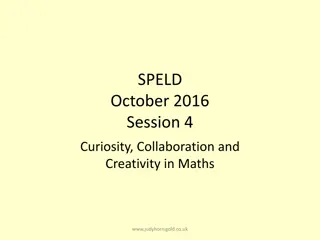Nurturing Curiosity and Daily Learning Habits
Explore the essence of cultivating curiosity, questioning, and daily learning through a blend of images and thought-provoking questions. Delve into topics such as the learning process from infancy to adulthood, the role of practice in skill development, and drawing inspiration from the story of Milo of Croton. Uncover the keys to fostering a love for learning and continuous skill enhancement in individuals of all ages.
Uploaded on Oct 06, 2024 | 0 Views
Download Presentation

Please find below an Image/Link to download the presentation.
The content on the website is provided AS IS for your information and personal use only. It may not be sold, licensed, or shared on other websites without obtaining consent from the author.If you encounter any issues during the download, it is possible that the publisher has removed the file from their server.
You are allowed to download the files provided on this website for personal or commercial use, subject to the condition that they are used lawfully. All files are the property of their respective owners.
The content on the website is provided AS IS for your information and personal use only. It may not be sold, licensed, or shared on other websites without obtaining consent from the author.
E N D
Presentation Transcript
Thamarai - Education How to cultivate interest, curiosity, questioning, daily practice and fun in learning?
Learn about learning from our own learnings Intentionally kept blank let group brain-storm
Learn about learning from our own learnings How much time does it takes for babies to walk? Is it genetic? Is there a daily practice? Have you seen any who gave up learning to walk? Are there perseverance? Are there failure that demotivated? Is everyone learn same way? Is everyone learn within same duration? How did we learn to walk/talk? How did we learn to cycle/swim/typing?
What can we learn from babies and toddlers? How do we train kids with habits like brushing? Do children learning everything by themselves? Do we need to ask everyday (to walk/talk)? or push or motivate? How do you reprimand kids if they don t daily practice? What elders can learn from it? I want to get healthy, but no time for exercise I want to get good in the skill (computers/math/english), but no time?
Is our skills fixed or genetically configured? If I pick up a new skill, with focus, learn and practice daily, can I become good at it? Time period may vary between person to person? One person may become good in a skill in 6 months? Another person may become good in a skill in 3 months? Isn t everyone is unique and special in someway? I fear not the man who has practiced 10,000 kicks once, but I fear the man who has practiced one kick 10,000 times Bruce Lee Even at age 10/20/3/40/50/60/70/80, we can pickup new skill, learn and practice?
Story of Milo of Croton Story from 'Milo of Croton', He was a famous wrestler. Calf was born near Milo s home. Milo decided to lift the small animal up and carry it on his shoulders. The next day, he returned and did the same. Milo continued this strategy for the next four years, hoisting the calf onto his shoulders each day as it grew. If we try lifting 4 year old bull on your kids shoulder on day-1, is it possible? Similarly we don't train our kids, but blame them for failure later in their exams. We can't expect our kids to be Genius or Smart when they turn 18, you should help them to setup environment to practice everyday!
Role of family Role of family P V Sindhu Her parents have been national level volleyball players. Her father, Ramana, who was a member of the Indian volleyball team that won the bronze medal in 1986 Seoul Asian Games, received the Arjuna Award in 2000 Sachin Tendulkar Ajit Ramesh Tendulkar, elder brother of Sachin, was the early inspiration of Sachin Tendulkar. Ajit played a significant role in Sachin s career giving him inspiration and courage in his childhood. The most important thing is that Ajit took Sachin to Ramakant Achrekar, the childhood coach of Sachin Tendulkar, when Sachin was 11 and had no experience of playing with cricket ball (hard ball). So, in fact, it was a bold initiative taken by Ajit Tendulkar. Viswanathan Anand Anand started learning chess from age six from his mother Sushila Martina Hingis Melanie Molitorov and Karol Hingis, both of whom were tennis players. Molitorov was a professional tennis player who was once ranked tenth among women in Czechoslovakia, and was determined to develop Hingis into a top player as early as pregnancy. Steve Wozniak His father, Jerry Wozniak, was an engineer for Lockheed Corporation. Waz learnt and played with electronics since the age of 4 A.R. Rahman & Prabhu Dev Both their parents from their relevant field, they passed on their mastery to their kids. They can t give magical touch
Daily Practice Role of family Why daily practice? Why consistency could beat an extra ordinary effort (only one time)? Rabbit and Tortoise story What do we learn from life of extra ordinary people? Isn t it they are ordinary people, who has put daily effort to become extra- ordinary To remain extra-ordinary, they keep putting daily practice and effort? Expert - Is it self made/is it pedigree? Sindhu Her parents were national level volleyball players Sachin His brother was a cricketer, who found the right coach for Tendulkar and gave up his cricket for Tendulkar Martina Hingis Got tennis training from her mother at the age of 3
What should become daily habit? Reading at least one page Tamil English Writing at least one page Tamil English Basic Mathematics few problems Addition Subtraction Multiplication Division
https://dailypractice.info/ Goal Spread daily-practice itself a great learning tool/technique for kids Create kids with extremely fast numerical/logical/memory skills Organized by few volunteers Practice math numerical skills Counting for Juniors (< 5 years) Addition/Subtraction/Division/Multiplication/Fast-Multiplication Please share daily (via whatsapp group) Great way to say Good morning! Works like attendance Triggers other kids to practice Try to use the same device We store the progress and statistics on that device (personal data mining/tracking/add-target) We need volunteers Be a responsible parent and daily-practice something Request new feature that would help your child If you kid requires, someone else would also require Sponsor gifts/gadgets for kids in villages/Spread the knowledge Create group and organize among your family-circle/school/caste/religion/race
Daily 1% improvement, is it really matter? To understand the real meaning You should know Mathematics To learn mathematics You should dailypractice






